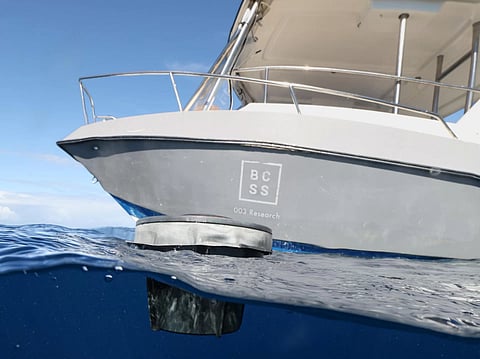

This project operates in more than 20 countries and territories across the Pacific, Atlantic, and Indian Oceans.
Satlink
The project by the Spanish technology firm Satlink, aimed at recovering and reusing technological devices used by the purse-seine tuna fleet, has expanded its presence to the Caribbean and is now also present in East Africa.
Precisely, the circular economy initiative ReCon is incorporating new partners in Saint Vincent and the Grenadines, as well as in Tanzania, Kenya, Madagascar, and South Africa, strengthening its presence in two key regions for marine conservation.
"In a context of growing environmental pressure, this kind of ambitious and practical innovation is exactly what the blue economy needs. We are proud to be building that future hand in hand with Satlink," said Dr. Mario Lebrato, head of the Ocean Observatory at the Bazaruto Center for Scientific Studies (BCSS) in Mozambique.
The intervention in the Caribbean has been made possible thanks to a collaboration with Ripples to Waves, a local NGO that promotes marine conservation through science, education, and art.
Ripples to Waves will use Satlink's refurbished buoys for scientific purposes and awareness-raising activities on marine debris and its impact, through the initiative One Drop in the Ocean.
Satlink has also reached an agreement with BCSS, a strategic partner of the project in Mozambique and operator of the first permanent Ocean Observatory in Africa.
In addition, BCSS is now also working in Tanzania, Kenya, Madagascar, and South Africa, where the volume of buoy recovery and reuse can be increased, and partnerships can be established with local fishers and organizations.
ReCon was established in 2022 and operates in more than 20 countries across the Pacific, Atlantic, and Indian Oceans. It is the largest global circular economy program of its kind.
At its launch, it partnered with the Australian NGO Tangaroa Blue Foundation and the Australian Marine Debris Initiative, emphasizing collaboration with the fishing industry and leading environmental organizations to ensure that used fishing devices do not become technological waste.
"Giving a second life to this fishing technology not only helps reduce waste, but also sets a new standard for how the industry, science, and coastal communities can work together to better protect and understand our oceans," said Kathryn Gavira, Director of Science and Sustainability at Satlink.
ReCon, which has collected more than seven tons of abandoned fishing gear, has been awarded the Tuna Awards (2023), the Best Ideas of the Year Award (2024), and the World Maritime Week Award (2025).
